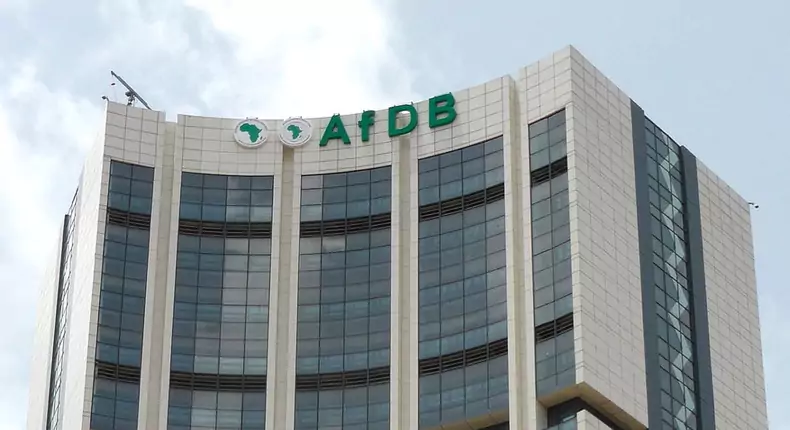The African Development Bank (AfDB) has granted Nigeria’s cabinet a $1 billion concessionary loan to support the nation’s budget financing.
The minister said; “There was financing of $1billion concessional financing, 25 years, eight years moratorium at about the same for 4.2% per annum, which was approved by the African Development Bank for this administration.”
“It was in recognition of the macro-economic measures that have been taken, the swift movement towards macro-stability, restoring revenue, improving the foreign exchange situation, and so forth, that have been taken by this government,”
“The reward, as far as the African Development Bank, a concessional financing organization, was to provide $ 1 billion in general budget support.”
The minister for Nigeria also mentioned that in an effort to lower debt servicing expenses, the Federal Executive Council had approved a cap of 2 trillion naira for the refinancing of costly government debt. According to Edun, Nigeria might avoid paying off debt to the tune of at least N50 billion.
Nigeria has been using the majority of its income, primarily from low tax collection, to pay off debt. In 2023, Nigeria’s debt service to revenue ratio is projected to be 73.5%.
“In order to keep working hard and maximizing the ability of the government to use the markets and to take advantage of different situations and improve situations, the Federal Executive Council approved a total limit of N2 trillion to be available for use by the Ministry of Finance to go in and out of the market and essentially to, where possible, bring down the rate of interest on the current outstanding,”
“So essentially, it will be refinancing and the view is that there will be an opportunity to save about N50 billion or more in debt servicing over time by giving back expensive debt refinancing with cheaper funding,” he said
President Bola Tinubu has started reforms since taking office in May in an effort to revive the largest economy in Africa after it had been in decline for nearly ten years. The removal of its costly fuel subsidy and the opening up of the foreign exchange market are two of these reforms that have caused the naira to depreciate by more than 40%.
Vodina Sam
Related posts
MTV 2022 VMAs: List Of Winners
Movie Legend Sidney Poitier Dies At 93
Fashion Highlights For The Weekend
Reviews
Follow Our Activities On Facebook
12 hours ago
12 hours ago
14 hours ago
15 hours ago
19 hours ago
SUBSCRIBE
[mc4wp_form id=”2012″]
Top Reads!
#BigBrotherNaija “Level Up” Week 6
Though last Sunday Sunday was meant to be a “no-eviction” day, it came as a shocker when fake housemate, Modella…
Dating in 2022; Situationships Are Not For The Fainthearted
Situationships are defined as that space between a defined relationship and something other than a friendship. It is a romantic…
20 Questions With Dinta Media’s Visual Storyteller, Chimeremogo Nwoke
Dinta Media is not really just a media production brand but we like to see ourselves as a hub for…
How Are Nigeria’s Small Businesses Coping?
The current rising rate of inflation and other burdens against the Nigerian economy speaks to the realities of the times.
Thrifting Is All The Rave Now, Here’s Why
By Amy Adindu The affordable clothing movement has gained global attention and acceptance as we’re all trying to look like…
#BigBrotherNaija “Level Up” Week 2
Week 2 of the highly watched Nigerian TV show kicked off with an early plot twist. On Sunday, Big Brother…
#BlueTunes: Burna Boy, Omah Lay Top Album Picks For July
July was a promising month for music lovers; from Lizzo’s album titled Special and Imagine Dragons’ Mercury, (Acts 1 &…
#BlueTunes Album Picks For June
Gbagada Express – Boj Bolaji Odojukan, popularly known as BOJ, was raised both in England and Nigeria. He shot to…
“A Creative’s Dream” with Jeff Chinonso
On the 26th of June 2022, Jeff Chinonso hosted his first solo art exhibition. The Augmented Reality exhibition themed “A…
Nigerian API-based company Thepeer raises $2.1 million
Tech infrastructure startup Thepeer has raised a $2.1 million seed round according to a report from TechCabal. Thepeer, a Nigerian…
Dika Ofoma, Ugochukwu Onuoha take on grief in Debut Film “The Way Things Happen”
The twenty-minute film focuses on the loss of a loved one, and how grief changes a person.
Nigerian Startups might just be Crippled by a Recently Leaked bill
Over the years there has been talks of amendment on the 2007 Act of the National Information & Technology Agency (NITDA).
Why We Love Kelechi Amadi Obi
The definition of talent is Kelechi Amadi’s iconic story. Imagine a person who studies law in school, gets called to Bar, and leaves it all for something different and unrelated…Painting!

















